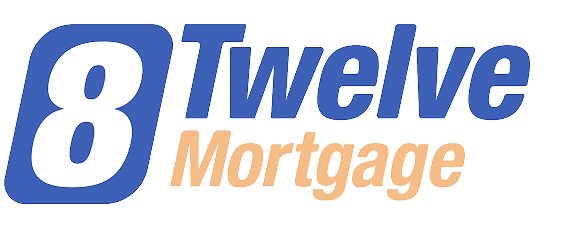
Summary
- The GST/HST credit is a tax-free quarterly payment from the Canadian government that helps individuals with low or modest incomes offset GST/HST costs. Payments are made in January, April, July, and October.
- Payment amounts in 2026 are based on marital status, number of children, and adjusted family income. Examples include $533 for singles and $698 for married individuals, plus $184 for each child under 19.
- To receive your GST payments, you must file your taxes for 2024, meet essential eligibility criteria (such as being at least 19 years old and a resident of Canada), and keep your information with the CRA up-to-date.
The GST/HST payment credits are paid out quarterly in January, April, July, and October within the first 5 days of the month.
The payout schedule for the GST payments can be confusing. If you’ve filed your taxes and qualify, you may already be receiving GST/HST credit payments.
If not, don't worry — we'll clarify things for you in this comprehensive guide. We're going to cover:
- What is the GST/HST credit?
- What are the most important payment dates in 2026?
- How much are GST/HST payments in 2026?
- How to make sure you get your GST payments
- How to apply for GST payments
P.S. — Looking for some stability in the confusing world of loans and financing? Lotly works with a network of 50+ lenders nationwide to find homeowners like you the fairest possible loans and lines of credit to make the most of your financial health. Get a free consultation today!
What is the GST/HST credit?
The GST/HST credit, or the goods and services tax/harmonized sales tax credit, is a tax-free quarterly payment made by the Canadian government to help individuals with low or modest incomes offset the amount of GST/HST they pay.
It’s important to note — this GST/HST credit is NOT the same thing as the temporary GST/HST exemption implemented by the Trudeau government late in 2024. That tax break ran for two months, from December 14, 2024, to February 15, 2025.
What are the most important GST payment dates in 2026?
Your annual GST/HST credit is based on your 2024 tax return, so the payments are split across 2025 and 2026. The CRA distributes the credit in four installments:
- July 4, 2025.
- October 3, 2025.
- January 5, 2026.
- April 2, 2026.
Credits from your 2025 return will also be distributed this year:
- July 3, 2026.
- October 5, 2026.
These are the official CRA credit payment dates for 2026. If the calculated credit in July 2025 is under $50 per quarter, the CRA will issue the total payment on July 4, 2025. In other words, if your credit (as it was calculated in July 2025) was less than $50, you received the full amount July 4, 2025.
How much are GST/HST payments in 2026?
GST/HST payments depend on your marital status, number of children, and adjusted family income for the base tax year. To get an estimate, you can use the CRA's calculator. For a quick overview, however:
- Single — $533
- Married — $698
- For each child under 19 — $184
Your payment amount can be altered depending on changes in family or marital status. In these situations, contacting the CRA as soon as possible is essential to ensure your payments are adjusted accordingly:
- When the number of children in your care changes. This may be due to them aging beyond 19 or the birth of a new child.
- Change in marital status. Either from divorce, marriage, or declaration of a common-law partner.
- In the event of moving.
- In the event of passing.
In all cases, you, your spouse, or your estate should inform the CRA immediately.
How to make sure you get your GST payments
To be eligible for the GST/HST credit, you need to:
- Be at least 19 years old.
- A resident of Canada.
You're not going to be eligible if:
- You've been incarcerated for 90+ days.
- You don't pay taxes in Canada because you are (or are related to) an officer/servant of another country (like a diplomat).
However, these are just essential eligibility criteria. To get your payments, you need to have following:
- Filed taxes in 2024. You'll need to do this even if you received no income or benefits in 2024.
- Your social insurance number (and your spouse's if married). You or your spouse can get the credit, but not both.
You can also get the credit for each of your children if they meet all of the following requirements:
- Under 19.
- Lives with you.
- Dependent on you or your spouse.
- Never married or lived with their own children.
How to apply for GST payments?
You don't need to apply for the GST/HST credit. The CRA will use information from your tax returns to determine if you're eligible and automatically send you the payments.
- If you haven't received your payment: make sure you have filed your taxes on time and that your information with the CRA is up-to-date.
- If you still haven't received it: contact the CRA for assistance.
Set up direct deposit with the CRA, as cheques can take longer to process.
Tips for making the most of your GST payments
- Use the money for necessities like groceries or bills.
- Consider saving a portion of it for unexpected expenses or emergencies.
- If you have children, consider using it for their education or extracurricular activities.
Overall, the GST/HST credit is designed to help low and moderate-income Canadians offset some of the taxes they pay on essential goods and services. By understanding the eligibility criteria and how to apply, you can ensure that you receive this vital benefit from the government.
Get the fairest secured loan possible from Lotly
Let's go over some key takeaways from this guide:
- The GST/HST credit is a tax-free quarterly payment from the Canadian government that helps individuals with low or modest incomes offset GST/HST costs. Payments are made in January, April, July, and October.
- Payment amounts in 2026 are based on marital status, number of children, and adjusted family income. Examples include $533 for singles and $698 for married individuals, plus $184 for each child under 19.
- To receive your GST payments, you must file your taxes for 2024, meet essential eligibility criteria (such as being at least 19 years old and a resident of Canada), and keep your information with the CRA up-to-date.
Need a better handle on loans, lines of credit, and other financial products? Lotly can help.
Our team of experts works with over 50 lenders to find the best loans and financing options you qualify for, ensuring you get the best deal and maximize your financial benefits. Get started today and discover how we can help you optimize your financial health.
Frequently Asked Questions (FAQs)
How often are GST payments made?
GST payments are typically made quarterly, on the 5th day of January, April, July, and October each year. If the date falls on weekends or public holidays, payments will be made the last business before the 5th. Keep an eye on your account for these payments and ensure you are up-to-date with your taxes to receive them.
How much can I expect to receive from the GST/HST credit?
The amount varies depending on your marital status, number of children, and adjusted family income. For example, a single individual may receive $533, while a married couple may receive $698 plus an additional $184 for each child under 19.
What if my income changes during the year?
If your income or family situation changes during the year (e.g. you get married or have a child), update your information with the CRA so that they can adjust your payment amount accordingly.
What happens if I move out of Canada?
If you move out of Canada, you won't be eligible for the GST/HST credit anymore. Make sure to inform the CRA of your change in residency status so that you don't have to repay any amounts received after you move.
Are there other tax credits available besides the GST/HST credit?
Yes, various tax credits and benefits are available through the CRA, such as the Canada Child Benefit, Working Income Tax Benefit, and Disability Tax Credit. It's important to research and understand what you may be eligible for to maximize your financial benefits.





